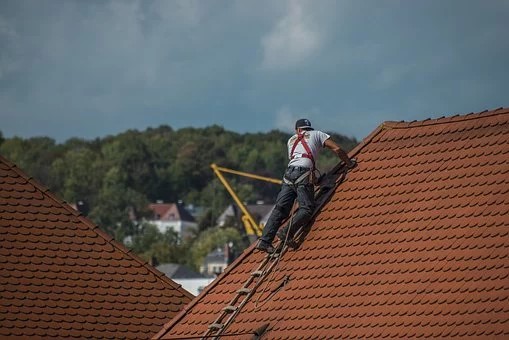Ever seen a house without a roof? Probably not. A roof is an integral part of a house, and without it, your house will be incomplete. The roof protects you and your family against harsh weather conditions. Thus the need to invest in quality and durable roofing systems.
But sometimes we fail to take measures to maintain its good condition. This can cause your roof to deteriorate and not reach its maximum lifespan.
Several factors can affect the lifespan of your roof and lack of maintenance is among them. If you’ve not been maintaining your roof, chances are you’re already having a roof problem and you need a roofing contractor.
Whether you want to install a new roof or want to repair your current one, you must ensure you hire the best roofing contractor.
But finding the right roofing contractor can sometimes be challenging. With the many roofing contractors available, choosing the best contractor can be a daunting task.
You’ll need to have the right information to be able to identify the best roofing contractor. In this post, we’ll highlight the key factors to consider when hiring roofers.
1. Pricing
Exceptional roofing services do not come cheap. If you’re looking to have your roof maintained, you need to prepare yourself financially. However, this does not mean that it will cost a fortune to repair your roof.
The truth is that there are a lot of roofing companies that charge competitively without compromising the quality. Besides, some roofing contractors offer free estimates which can help you in making the right decision. Thus it is advisable to look for roofing companies that are willing to provide free estimates.
The most important thing is to be fully aware of the hidden charges and unexplained fees.
2. Local Physical Office
A reputable roofing contractor should have a physical office. If your prospective roofing company does not have an office, you should be concerned.
Be sure to find out the physical address of your roofing contractor and inquire about their staff members. Ensure you can easily access your roofing contractor in case you need any help.
3. License and Insurance
A roofing contractor should have a license and insurance. With licensed roofing contractors, you’re assured of a perfect roofing job. Licensed roofing contractors have undergone formal training and multiple tests, and so they have in-depth knowledge about the roofing industry.
It is also important to hire contractors who have valid roofers insurance. It will not only protect roofers against workplace injuries but also protect you as a homeowner.If a person gets injured while repairing your roof, the roofing company will compensate them without you being financially or legally liable.
4. Consider Previous Work Samples
An excellent way to know what to expect from a roofing contractor is to look at their previous work samples and references. To get samples of their work, ask your contractor to provide pictures of their previous work. Also, be sure to look at their portfolios on their website.
Also, let the contractor provide a list of references from their previous clients. Then you can reach out to some of them and ask about their experience dealing with that contractor. Ask them whether they were satisfied with the contractor’s workmanship and how the roof is holding up now.
5. Client Reviews
As a homeowner, you can take advantage of the internet to carry out a background check on prospective roofing professionals. You simply type the roofing company’s name and search for online reviews. You’ll access numerous client reviews on local listings.
Websites such as Google My Business, Yelp, and Yellow Pages are some of the websites where you can check local roofing contractors and read honest reviews. Don’t just focus on positive reviews; consider the negative reviews as well.
6. Experience
You’d surely not want to hire an inexperienced roofing professional. Contractors take several years to gain experience in handling various roofing problems.
A roofing contractor that has worked in the industry for many years has undoubtedly performed maintenance on roofs they have previously installed. They are aware of the best practices and the tools to use.
An experienced roofing contractor can handle roofing problems caused by different weather conditions and do it without putting you or themselves at harm.
7. Roofing Warranty
Another critical thing to check is whether your roofing contractor offers a roofing warranty. A roof installation needs to be accompanied by two separate warranties: Manufacturer’s warranty and workmanship warranty.
Manufacturer’s warranty covers defects that result from roofing material itself, for instance, a roofing shingle. Workmanship warranty, on the other hand, covers installation mistakes.
Reputable contractors should be responsible for their work. The last thing homeowners would like is to pay for a mistake that is not their doing.
Tags: average cost, contemporary, energy efficiency, home improvement, insurance, license, roof replacement, roofing, roofing materials, warranty

